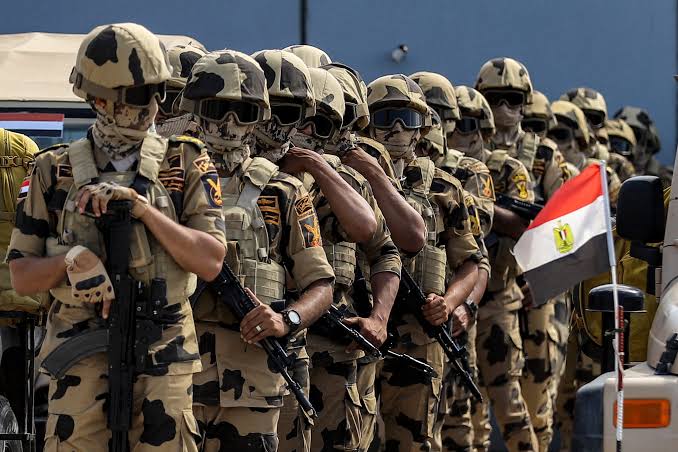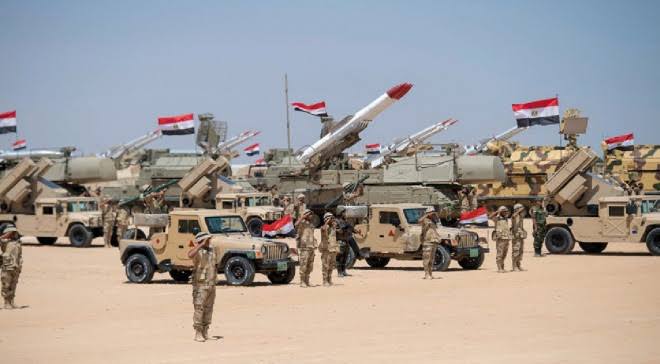Facebook Twitter (X) Instagram Somali Magazine - People's Magazine
Egypt is set to hold high-level talks with Somalia next week regarding Cairo’s potential contribution of peacekeeping troops to a multinational force combating Islamist insurgents in the Horn of Africa. The discussions, scheduled for January 15-17 in Cairo, were confirmed by Somalia’s State Minister for Foreign Affairs, Ali Balcad.
This diplomatic development follows Egypt’s recent commitment to support Somalia’s security efforts. Last month, Egyptian Foreign Minister Sameh Shoukry announced the country’s willingness to deploy troops as part of the African Union Support and Stabilization Mission in Somalia (AUSSOM) after an official request from the Somali government. This mission aims to counter the threat posed by al-Shabaab, an al-Qaeda-affiliated militant group responsible for widespread violence and instability in the region for nearly two decades.
The upcoming talks are expected to address troop deployment logistics, command structure, and the scale of Egypt’s involvement in the multinational peacekeeping force. Cairo’s participation signals a broader commitment to supporting regional stability and combating terrorism in the Horn of Africa, aligning with Egypt’s strategic interests in promoting security across the African continent.

Simultaneously, Somalia is reconsidering its stance on excluding Ethiopian troops from the peacekeeping mission. This policy shift comes amid improving diplomatic relations between the two nations, facilitated by mediation efforts led by Turkey. Ethiopia has historically been a major contributor to the UN-backed peacekeeping forces operating in Somalia but was recently sidelined due to rising tensions between Addis Ababa and Mogadishu.
While discussions on Ethiopia’s involvement are ongoing, Balcad noted that the size of the Ethiopian contingent to be readmitted into Somalia remains uncertain. However, the potential reintegration of Ethiopian forces could mark a significant step toward strengthening the operational capacity of the peacekeeping mission.
The African Union Support and Stabilization Mission in Somalia (AUSSOM) is the successor to the African Union Mission in Somalia (AMISOM), which played a pivotal role in stabilizing the country since its deployment in 2007. AUSSOM’s mandate includes providing security assistance, supporting the Somali National Army in counterterrorism efforts, and ensuring the gradual handover of security responsibilities to local authorities as the country builds its own defense capabilities.
Egypt’s decision to engage in the peacekeeping talks aligns with its broader foreign policy objectives, emphasizing solidarity with African nations facing security challenges. As a key regional power, Egypt’s involvement could enhance the mission’s credibility and operational strength while contributing to long-term stability in Somalia and the surrounding region.
The peacekeeping discussions also reflect Somalia’s ongoing efforts to build regional alliances in the fight against terrorism. With al-Shabaab continuing to pose a threat through attacks on both civilian and military targets, international cooperation remains essential. The militant group has repeatedly targeted key infrastructure and public gatherings, aiming to destabilize the government and obstruct reconstruction efforts in the war-torn nation.
In recent years, Somalia has made significant strides in reclaiming territories previously controlled by al-Shabaab, with the support of regional forces and international partners. However, the group’s capacity for asymmetric warfare, including suicide bombings and ambushes, underscores the need for sustained peacekeeping support from capable regional actors like Egypt.
The Egyptian government’s potential troop deployment could also serve as a model for broader African cooperation in addressing cross-border security challenges. Regional security experts have emphasized the importance of collaborative efforts in dealing with threats that transcend national boundaries, particularly in fragile states where extremist groups exploit instability.
As the Cairo talks approach, both countries remain focused on ensuring that the peacekeeping mission aligns with international legal standards and prioritizes civilian protection. The African Union and the United Nations continue to emphasize the importance of adherence to human rights norms in all peacekeeping operations.
The success of the planned negotiations could mark a turning point in regional security efforts, with Egypt playing a leading role in supporting Somalia’s path toward long-term stability. The outcome of these discussions will likely influence broader peacekeeping strategies across Africa, demonstrating the importance of multilateral cooperation in addressing complex security challenges.

